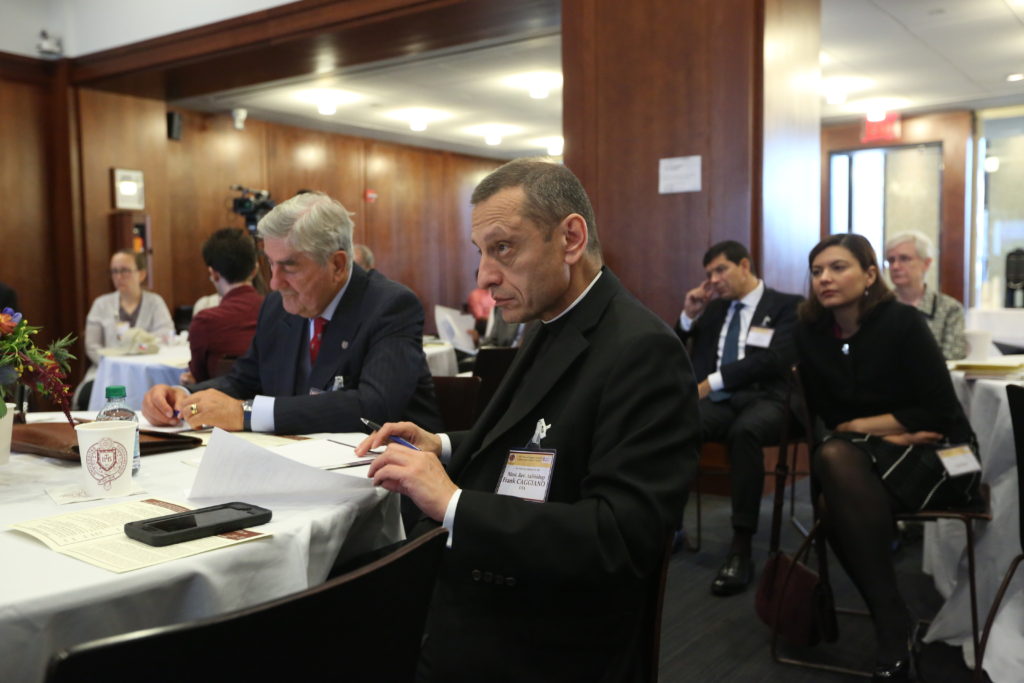On September 23, 2016, CAPP-USA and Fordham University co-sponsored a conference called “Pope Francis’ Call for Escaping Poverty: Practical Examples and New Proposals.” The conference examined the definition and measurement of poverty and proposed specific, practical efforts which operationalize Pope Francis’ insistence that people “be dignified agents of their own destiny.” What follows is the last in a series of posts authored by graduate students in Fordham University’s International Political Economy & Development Program that offer a summary and response to a topic discussed at the conference.
The last panel of the conference was devoted to the problem of poverty and violence. This sphere is vastly understudied and sometimes misunderstood, mainly because the exact causal relationship and means of measurements of poverty and violence are still unknown.
In order to understand the problem, it is important to have a clear definition of violence. Statistics show that nearly two billion people now live in countries where development outcomes are highly influenced by fragility of the state (World Bank), and by 2030 almost 50% of the world’s poorest will be living in a region affected by violence. However, when we talk about violence and development we shouldn’t forget that wars are not the only form of violence. The violence of everyday life is one of the biggest obstacles today, resulting in nearly 45 million people, including children, subject to some form of modern slavery. Finally, violence can include economic abuse of power, any form of domestic violence, land-grabbing, among other things.
Nicholas Michael, a member of UN negotiation team on Syria, introduced essential steps required to overcome the violence. He pointed to ten steps on how to solve the conflict and associate people:
- construct an open dialogue with civil society organizations;
- include women in sufficient number in the process (in addition to official delegations’ women representatives);
- consistently remind the parties of the conflict their obligations under the international humanitarian laws, international human rights, and criminal laws;
- encourage and assist people in starting business processes;
- develop responsible a media environment;
- relate to religious communities;
- design adequate accountability, truth telling, and reconciliation mechanisms in order to deal with the past and create a sustainable situation;
- reshape sanctions regime by lifting the sanctions that have no impact to solving the conflict and adversely affect civilians;
- assist the parties to agree on principals of a new constitution that will effectively protect human rights;
- and create conditions for the safe return of refugees to the country.
Armando Borja, Jesuit Refugee Service North America Regional Director, talked about how poverty can contribute to violence as the poor often have no other way to protect themselves except to fight. The main focus of his speech was on refugees and their impoverishments. Refugees often find themselves in the bottom economic level, being pushed to the limit, without access to health services, education, adequate nutrition. They also suffer from other consequences of poverty and, tragically, repeated displacement. One of the ways to effectively help them is through the provision of education as it is a vital lifesaving intervention that can provide means for better future. Simple hospitality informs how we can integrate refugees into the new communities.
The problem of violence and poverty is one of the hardest for mankind to solve. What level of poverty in the particular region triggers the violence? If there was an accurate answer to that question, perhaps, it would be easier to predict possible conflict and try to solve it before it evolved. On the other hand, violence, being an abuse of any power, can be hidden from society and thus contribute to the development of poverty. While the Fordham Francis Index does a great job determining different factors contributing to poverty, it barely touched the problem of violence. It would be interesting to try to conduct research including different types of violence and analyze how it might trigger poverty and vice versa. However, this type of data is hard to aggregate and comparisons are difficult, which leaves this important question open.
Liya Khalikova is a first-year student in Fordham University’s Graduate Program in International Political Economy & Development.



